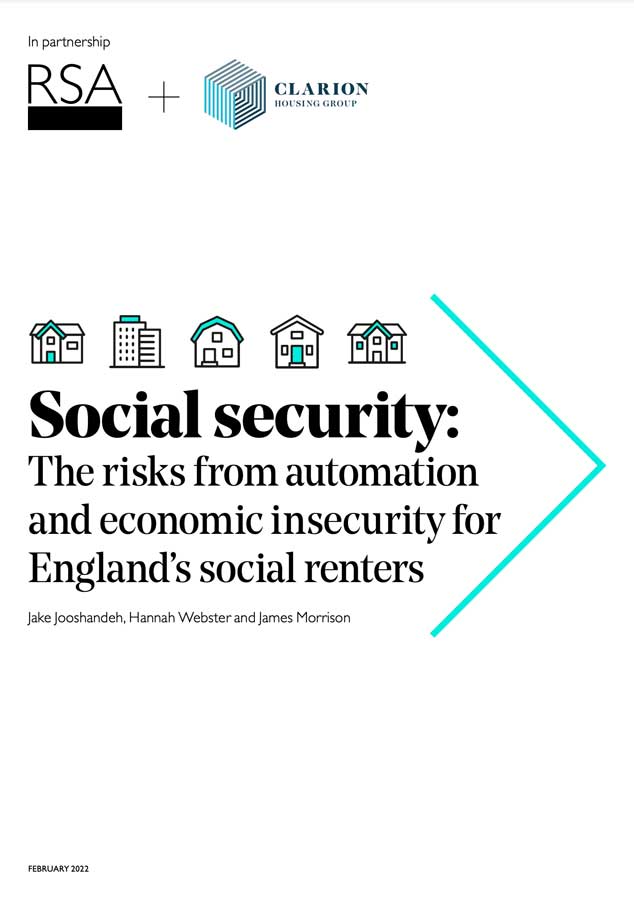Social security
The changing world of work and the impact on social housing residents

INNOVATION & IMPROVEMENT
Image: Istock

David Avery
Chair, Clarion Housing Group
Clarion Housing Group is the largest social landlord in England, providing affordable homes to some 350,000 people across the country. We know that having a safe and secure home enables people to build better lives, and we believe being a good social landlord is about more than just bricks and mortar.
That’s why our charitable foundation, Clarion Futures, works with charities, social enterprises and other organisations to change lives for the better. Every year we support thousands of people to access training and find work, as well as helping people manage their money, improve their digital skills and play a part in the life of their community.
Understanding our residents
As the world of work evolves, we wanted to learn more about the challenges this presents for our residents. The tailored support we provide transforms lives, but we need insights and data to know how best to target it and maximise the benefit to our residents. So we teamed up with the Royal Society for Arts, Manufactures and Commerce (RSA) to get a fresh perspective on the experience of social housing residents in our changing world of work.
The RSA’s unrivalled knowledge and expertise has helped us to explore the impact of the pandemic, as well as broader changes to the labour market, comparing the experiences of social housing residents with those of private renters and owner-occupiers.
Unsurprisingly, the research found that social housing residents have been more likely to experience economic insecurity due to the pandemic, with four in 10 “just about managing to get by”. Strikingly, three quarters of social housing residents said they never worked from home, even at the height of the pandemic, and the same group are more likely to be in jobs at high risk from automation.
“These findings paint a challenging picture, but the research also highlighted the stability and security provided by social housing, minimising the trade-offs between social housing residents’ economic lives, home and family lives, and their health and wellbeing.”
Looking to the future
On the face of it, these findings paint a challenging picture, but the research also highlighted the stability and security provided by social housing, minimising the trade-offs between social housing residents’ economic lives, home and family lives, and their health and wellbeing.
Publishing this report is just the beginning. Together with the RSA, we want to lead a public debate on what more can be done to help people in social housing to overcome these challenges, working with partners and government to drive real change.
The report features a series of recommendations to help shape the policy agenda, of which we’re particularly supportive of two clear calls on the government to:
- Provide a more comprehensive offer of maintenance grants and bursaries for adult learners in the social housing sector, as part of the Lifetime Skills Guarantee
- Grow the UK social housing stock, ensuring 30% of all new homes are for social rent
We are committed to using the insights from this important piece of research to review and future-proof the services and support we offer through Clarion Futures. With the risks associated with automation on the horizon, understanding the likely impact on the working lives of our residents is invaluable, ensuring we can support them into jobs in sectors offering long-term career opportunities.



